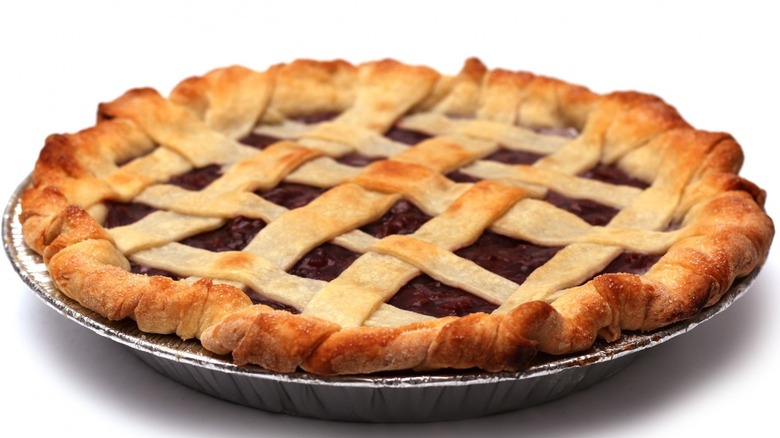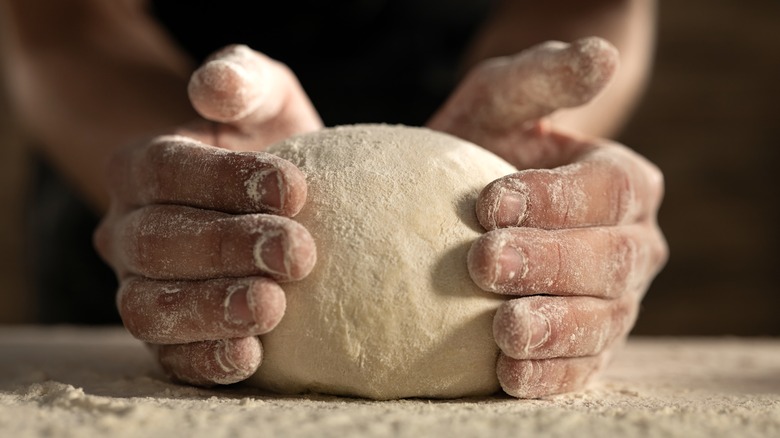You're Probably Making A Classic Pie Mistake
The turn of the season is here, and cooler weather, falling leaves, and pumpkin smells are in full force in the wake of summer's end. With the change in the calendar comes the annual transition to autumnal flavors. From pumpkin spice to cinnamon to nutmeg, warm, earthy flavors always come to life between October and December. Although the holiday season is still weeks away, many people find it comforting to enjoy foods that lean into Thanksgiving and Christmas flavors long before the arrival of November.
One traditional fall food, whether savory or sweet, pecan or pumpkin, is pie, a timeless delicacy no doubt. While there's nothing better than fresh, homemade pie, there's nothing worse than taking your creation out of the oven only to find it tough and bone dry, to borrow words from Paul Hollywood. Luckily, there are several expert tips for giving your pie the heavenly texture it deserves. One particular guideline is to keep your crust light and airy.
Overworking your dough can ruin your pie's crust
Crust can make or break your pie — literally. You want your crust have a flaky texture, toasty flavor, and an air of lightness to it. How well you can tick those boxes, however, depends on the way you knead the dough. According to popular baking goods brand Bob's Red Mill, an underworked dough can be fixed, but an overworked dough is as good as gone. When you overwork your pie dough, per Bon Appétit, you run the risk of baking up a tough crust that lacks that sought-after delicate texture. That's why one of the secrets to the perfect pie crust is kneading your dough just until the fat and flour come together — and no more.
If you do accidentally knead your dough to oblivion, though, adding acidic ingredients like citrus, vinegar, or wine can revive it, instructs Food & Wine. Not only will this bring another burst of flavor to your pie crust, but it can also break down the toughness of an overworked dough. Moreover, adding acid to your dough can also function as a preventative measure; if you make your dough a couple of days in advance, a splash of vinegar will keep it from turning a dreadful shade of gray due to oxidation. While Martha Stewart says "the science is sketchy" on this method, many professionals use it for insurance in case they put a little too much oomph in their dough — or simply because that's how they've always made their favorite pie crust.

